Provocation before disappearing into oblivion Berlin’s policy in the Baerbock era
Germany’s Foreign Minister, Annalena Baerbock, sparked another scandal in Baku with her criticism of the host country and her attempt to absolve the West of responsibility for the state of the planet. This political stance comes from a politician on the verge of leaving her post, likely fading from the spotlight of serious politics in her country. As for Baerbock's accusations against Baku, they seem driven by simple envy — Azerbaijan succeeded in hosting a major global event despite the ongoing collapse of the international system.
Baerbock’s effort to pivot the conversation to human rights issues, unrelated to climate, is not idealism but cynicism, as she has never targeted anyone except to further pragmatic political goals. Her criticisms of successful non-Western nations are, in fact, manipulations of facts. What’s even more concerning is the reckless attitude of Western politicians like Baerbock toward humanity’s survival. While she clashed with Azerbaijan and other non-Western nations over hundreds of billions in additional funding for victims of the climate crisis, her government had no hesitation in allocating €100 billion in off-budget funding for the armament of the German military. And this is just a fraction of the military spending by other Western nations.
Germany’s Greens on the brink
Germany’s Foreign Minister stirred controversy in a situation where her party, the Greens, finds itself in a political deadlock at home. In fact, the liberal establishment is in retreat across the West. Fearing that this might not just be a temporary shift to the opposition but a full-fledged political collapse, liberal elites are scrambling for political survival, resorting to increasingly radical measures. This is evident now with the team of US President Joe Biden, who, along with his liberal allies in the EU, is attempting to escalate the Eastern European conflict to at least a European scale.
The clouds are also gathering over Britain’s left-liberal Prime Minister Keir Starmer — despite having taken office only in July, over a million Britons have already signed petitions calling for his resignation. In the last three years, London has seen three different prime ministers.
The situation for Germany’s left-liberals, represented by the Green Party, is even worse. This party, in coalition with the Social Democrats, has been running Germany for years, but its time has passed. At the end of October, the Greens’ approval rating sank to a new low, falling to just 9 per cent according to sociologists sympathetic to the liberals. In the upcoming elections, it could be even worse. The minister representing this party, supported by only a small fraction of Germans, was the one speaking in Baku — a system in the West often referred to as “liberal democracy.”
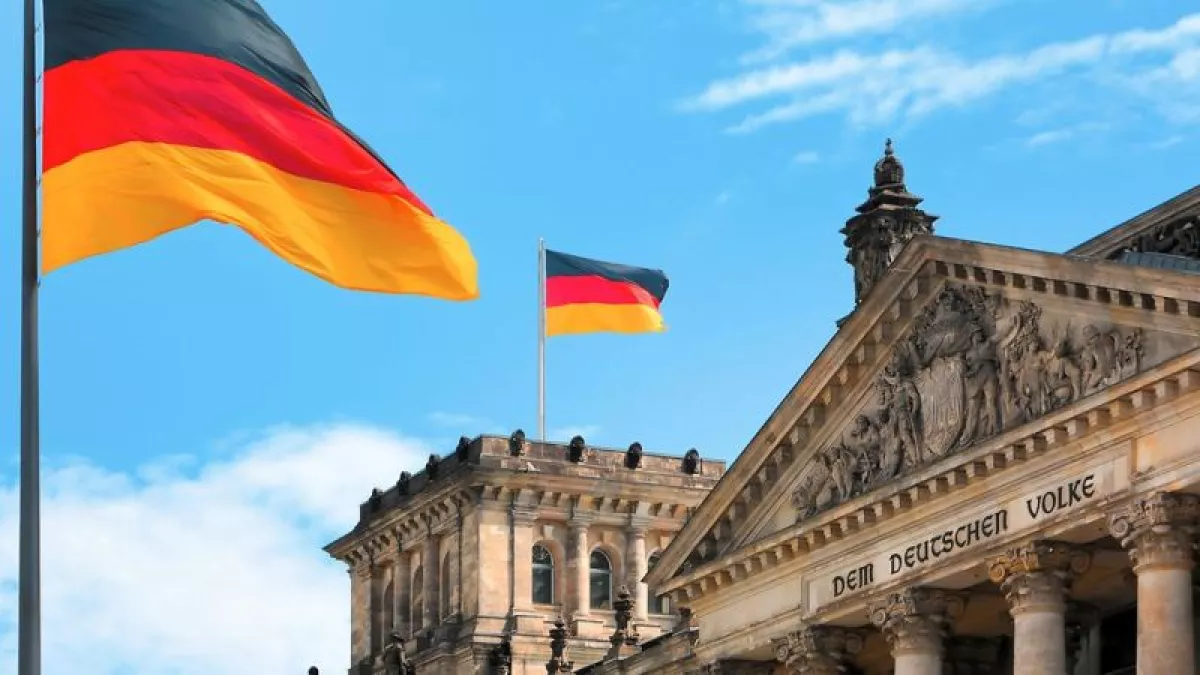
The Greens won’t recover before the upcoming February elections, not least because the coalition government in which they participate continues to pursue a political course that irritates many citizens. As a result, people are resorting to voting for even the most destructive opposition, simply to achieve change. The government is betting on escalating tensions with Russia, China, and Iran, attempting, alongside Biden, to manoeuvre against Trump in relations with the US, while at home, it threatens to ban the second most popular party, the Alternative for Germany (AfD). Meanwhile, the economy is faltering — with daily reports of bankruptcies and layoffs (this past weekend, Bosch announced thousands of job cuts), and the much-hyped government-backed battery manufacturing mega-firm has gone bankrupt after receiving €900 million in subsidies.
The Greens are set to lose the elections and will secure only a few seats in the new parliament. On February 23, at the appointed hour, their carriage will turn into a pumpkin, the horses into mice, the coachman into a rat — and what will happen to Baerbock?
Scandal, provocation, and show
Like Cinderella, Baerbock will have to return to her former role as an activist, since she is unlikely to secure a seat in parliament. It’s telling that even her own party decided not to tie its future to Baerbock: just a few weeks ago, at the Green Party congress, they nominated a candidate for chancellor who has no real chance of passing — current Minister of Economics Robert Habeck. Although nominating Baerbock as a woman would have been quite on-trend!
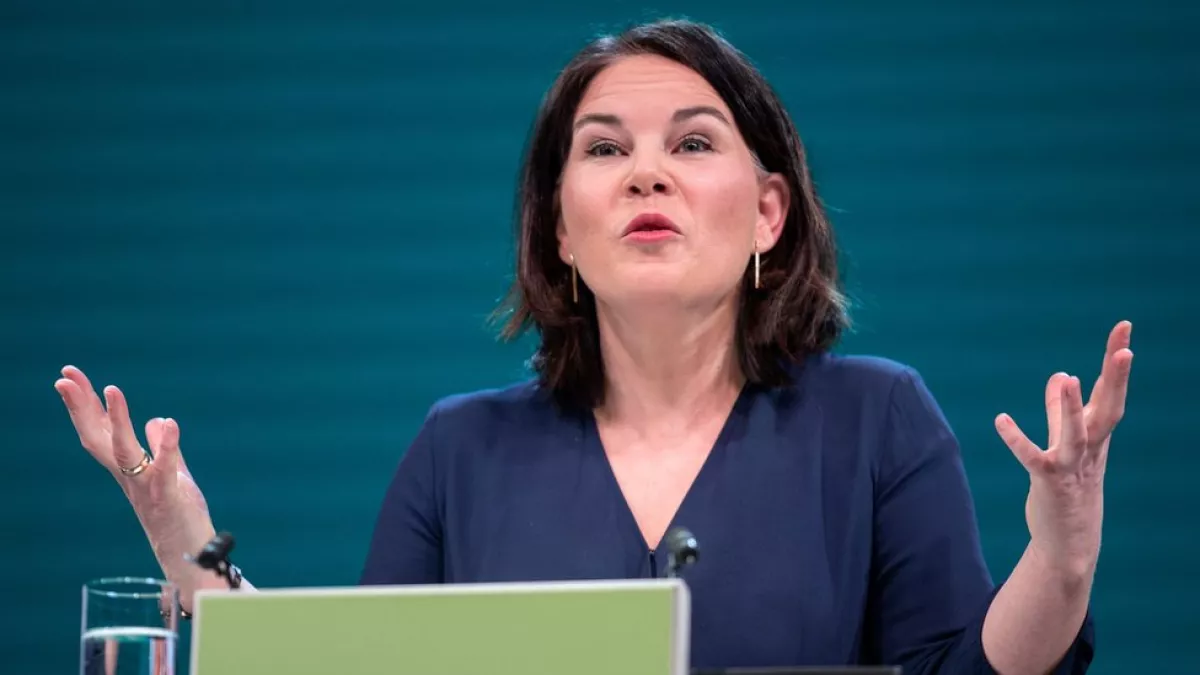
Baerbock’s time as Foreign Minister has been marred by a series of scandals. One of the most recent, which flared up in late summer, could even lead to criminal charges against her. She effectively authorized the mass issuance of visas to Afghans who had worked with German forces and other institutions following the US and NATO invasion of Afghanistan, without properly vetting their reliability. In some cases, visas were even stamped into expired or forged documents. The Christian Democrats, who are likely to form the next government, are outraged by her actions, pointing out that the foreign minister has "recklessly played with security matters when it comes to advancing her political agenda" and, overall, that "it is unacceptable to replace existing law with specific political ideals."
This is precisely what Annalena Baerbock focused on during her time as Foreign Minister: not principled idealism, but rather dogmatism masking empty ambitions in international politics. For example, she once caused a scandal in Türkiye by publicly lecturing her Turkish counterpart at a press conference. Initially, German activists applauded her uncompromising stance as a "warrior minister," but soon realized that her public outbursts "in defence of human rights" were selectively applied. Jürgen Gottschlich, writing for the "Tagesszeitung" — a newspaper with ties to the Greens — analyzed Baerbock’s political tactics in creating public scandals, using her actions in Türkiye and Greece as examples. Even Gottschlich was unimpressed by her attacks on Ankara, sarcastically noting that the minister bravely confronted the host country when she knew her position had the backing of superpowers or at least the US. Her public uproars are over high-profile issues that, in reality, remain unresolved. And ultimately, her principles vanish when political convenience dictates otherwise.
This is exactly what we saw in Baku. Baerbock’s outbursts are not emotional tirades like those of Greta Thunberg. They are theatrical tantrums, hiding cold political ambitions beneath. This was also pointed out by Azerbaijan's Presidential Assistant for Foreign Policy Affairs, Hikmet Hajiyev, who noted that the minister appeared to be acting out of concern for upcoming elections.
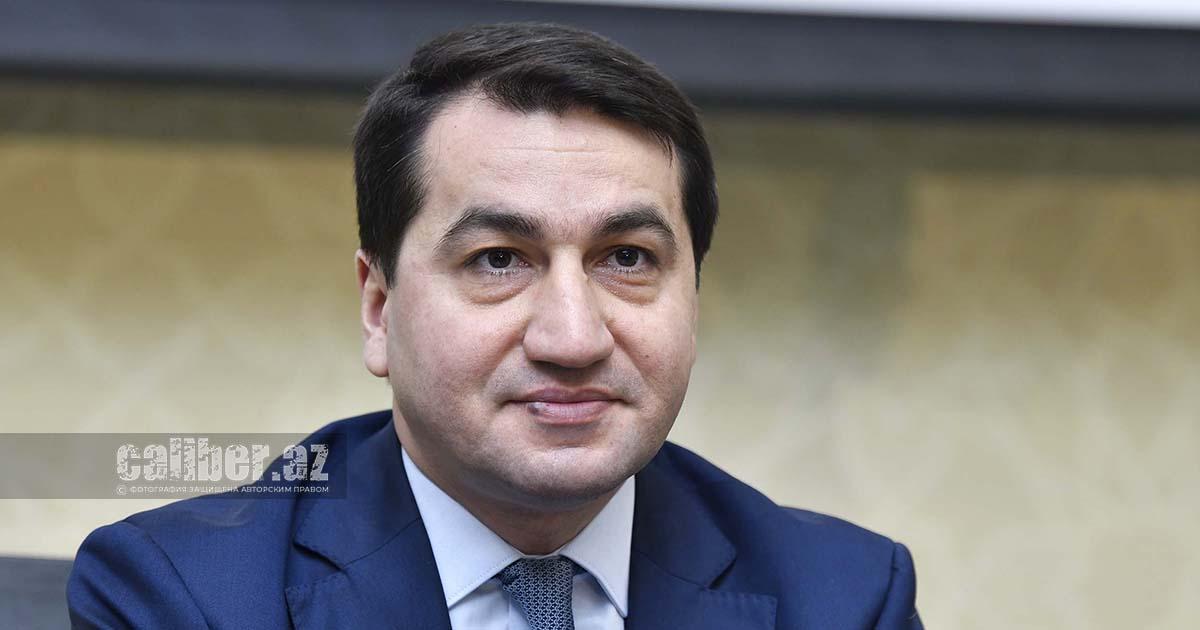
Aware that she is unlikely to win reelection, Annalena Baerbock appears determined to avoid returning to her initial role as a party activist — the highest position she has ever held before becoming minister. Instead, she seems intent on capturing the attention of what remains of the global liberal establishment, particularly within EU structures in Brussels, or perhaps even NATO. By positioning herself as a staunch defender of European values, Baerbock may be laying the groundwork for a comfortable post-election transition to a high-ranking role in Brussels, mirroring the career trajectories of other similar politicians.
Her seemingly outlandish and theatrical rhetoric about COP29 — declaring, “We Europeans cannot allow this” — is no accident. This calculated performance is designed to resonate with Brussels audiences, where such declarations find a receptive ear.
Baku succeeds in hosting a global forum
Thus, Baerbock’s remarks in Baku — both during the session and on Twitter — are not a debate with the Azerbaijani government or forum participants. This is evident from the illogical and poorly thought-out nature of her criticisms. In her first COP29 speech, the German minister lashed out at the host country’s government, criticizing its "human rights situation."
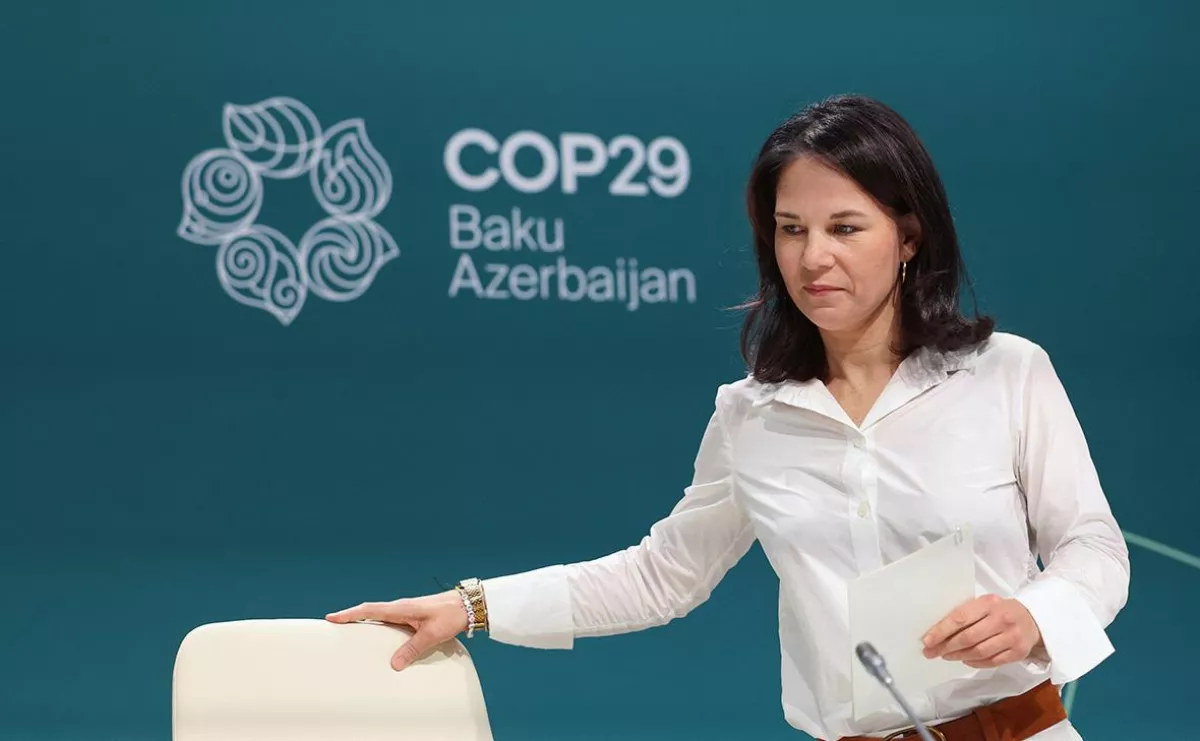
In other words, she chose to address a topic completely unrelated to the forum’s agenda. Baerbock’s understanding of professionalism is lacking; instead of contributing responsibly to a global discussion, she made a theatrical appearance at the final session to launch a demonstrative attack on the hosts. As we’ve pointed out, Baerbock is adept at presenting herself and discussing themes like “human rights,” “democracy,” and “freedom,” but these topics have long served as tools for selective and opportunistic rhetoric. Her contrived, emotionally charged outbursts are reserved for carefully chosen targets.
For example, this autumn, Baerbock visited not only Azerbaijan but also other non-Western countries with political systems that draw far more criticism from Western organizations than Azerbaijan’s. Yet, in those places, she smiled politely and avoided any confrontational behaviour.
In essence, her actions align perfectly with the political expediency of the European liberal establishment. The criticisms levelled by this establishment—and Baerbock as its representative—against Azerbaijan are not based on specific facts about the country’s political reality, which is certainly no worse than that of many other nations. Rather, these grievances stem from a banal form of xenophobia (bordering on racism, albeit cloaked in lofty rhetoric about “values”) and a calculated ambition to expand their sphere of influence.
This is why Baerbock and the EU’s liberal elites find it so difficult to come to terms with Azerbaijan’s success in hosting the 29th session of the UN Climate Change Conference (COP29). How could Baku manage to organize such a high-profile forum? It challenges the mental framework of the liberal elite, as the success is undeniable.
First, the event achieved broad global participation, including representatives from countries that are in open conflict with one another. Even nations fiercely opposed to each other sent their highest-ranking delegates to Baku—prime ministers, presidents, and key ministers.
This accomplishment is all the more striking when compared to the recent summit in Switzerland, organized by the collective West with Baerbock playing an active role, which aimed to show support for Ukraine but, unfortunately, ended in complete failure.
Secondly, the conference in Baku culminated in significant new agreements, including enhanced commitments to funding efforts to combat climate change and its consequences. Thanks to Baku’s determined efforts, a last-minute consensus was reached to increase annual climate financing to $300 billion for the period 2025–2035.
While this figure falls short of the $1.3 trillion per year developing nations had been advocating for during the same timeframe, the achieved commitments still represent a substantial step toward the right goal.
Such summits and agreements gradually establish new norms and values in global politics—promoting tolerance and collaboration for the higher purpose of saving humanity. They also provide mechanisms to gradually engage nations in the fight to overcome the climate crisis.
Who polluted the planet?
Following the forum, Baerbock attempted to shift the responsibility for fulfilling climate commitments onto non-Western countries. Developing nations, "new wealthy emitters" (such as China, Saudi Arabia, and others), and, of course, Azerbaijan, were all targeted in her remarks. She articulated the desires of Western liberal elites in an elaborate but precise manner:
"We are at COP29 in the midst of a geopolitical power play by some fossil fuel-dependent states. Unfortunately, their playing field is the backs of the poorest and most vulnerable countries…As the EU, we acknowledge our historical responsibility. However, climate financing and CO2 reduction must go hand in hand. We will not allow the poorest nations to be shortchanged by the new wealthy emitters, backed by the presidency."
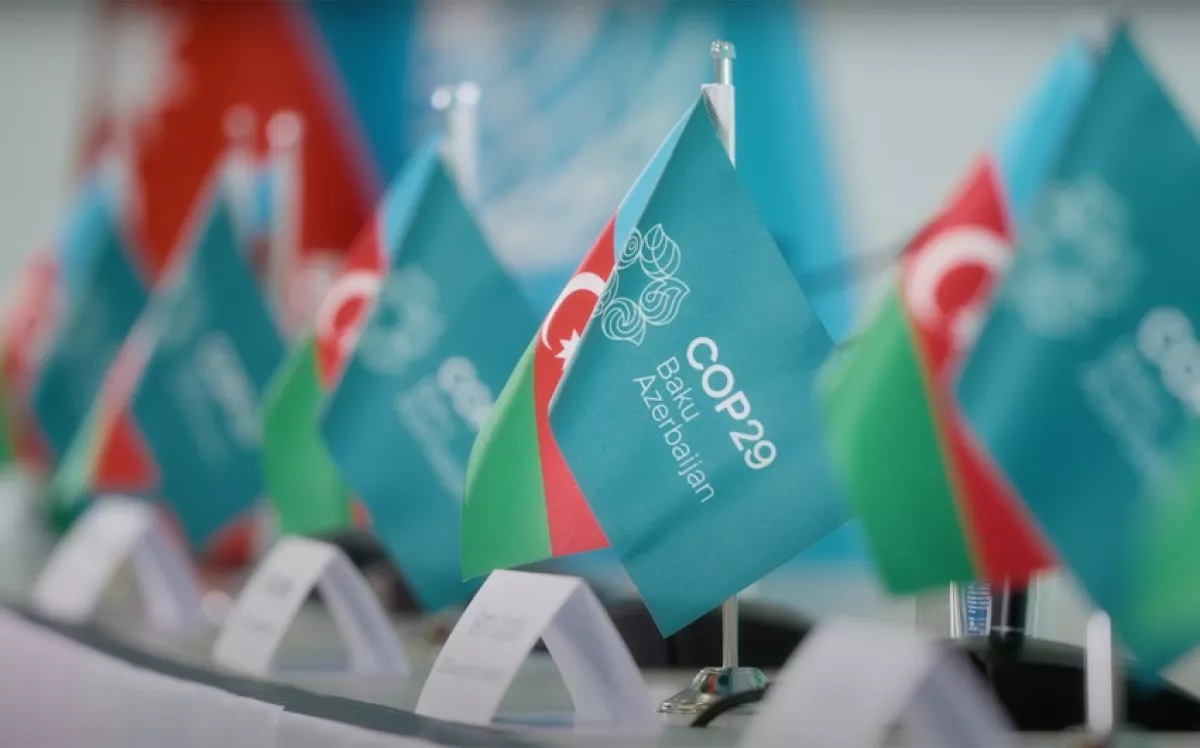
This tweet and others by Baerbock carry a central message — additional funds to address climate issues should not come from the EU and the rest of the West. The successful non-Western countries must be made to pay. Baerbock is not acting as a dissenter crying out in the desert but as a conveyor of the current US government's stance. The US is using climate policy as a weapon in its battle for global hegemony. According to Baerbock and Biden, China and countries like Saudi Arabia, which have dared to distance themselves from the US, should bear the costs. This would allow Washington to clip the wings of countries that have succeeded by disobeying American demands. During the summit, some pro-Western politicians expanded on this idea, calling for a complete reassessment of China's and India's roles in climate agreements, in order to impose obligations on them for providing aid, since China is the "largest CO2 emitter," and India has the "fifth-largest economy in the world."
The logic behind Baerbock and her like-minded allies is clear — the West has no extra funds, and now, more than ever, they are needed for the ongoing war with Russia and the upcoming conflicts with Iran, China, and others. As a result, the focus is not on collecting money based on responsibility for the polluted planet and disrupted climate cycles, but on those who have the means to pay. To justify these demands, the issues of historical responsibility for the climate crisis and simple statistics are turned upside down.
Let’s begin with history
An undeniable fact is that the so-called success of the West, its "unique" prosperity, and wealth are built on centuries of not only exploiting and plundering non-Western countries but also on the reckless economic activities of Western nations and their counterparts, who have disproportionately harmed the global environment. Moreover, they have imposed and continue to spread flawed economic models and practices around the world. Justice demands that those who are responsible should pay and atone for their actions, not just anyone from whom money can be extracted.
The statistics also do not support Baerbock’s arguments. According to the World Bank, Germany’s per capita CO2 emissions are 7.26 tons, while in the US, this figure is as high as 13.03 tons. In comparison, CO2 emissions in India are just 1.58 tons, and even in China, they amount to only 7.76 tons. A similar pattern emerges with plastic waste: China pollutes the environment with plastic at about a quarter of the rate of the US or the EU.
However, Baerbock’s criticisms are directed exclusively at non-Western countries, not the U.S. That is where her so-called principles end. Moreover, considering such statistics, where Germany is clearly no less polluting than China and has been doing so for much longer, the German government, with Baerbock's involvement, should be setting an example in financing global climate policy. Yet, even the supporters of the "green" agenda were outraged by what Baerbock’s party colleague, Minister of Economics Robert Habeck, brought to the forum in Baku. As they rightly pointed out, he proposed "minuscule amounts" — 208 million euros for all developing countries to finance the decarbonization of their industries. Meanwhile, Berlin easily finds tens of billions for military activities in Eastern Europe — deploying new forces, constructing infrastructure, and so on.
In short, the illogicality and irrelevance of all the points Baerbock raised against Azerbaijan and non-Western countries suggest that her words should be regarded as nothing more than a political manifesto. There is no idealism or well-thought-out ideological position behind them — she is simply echoing the well-known stance of the weakening liberal establishment in the EU and their recently defeated allies across the Atlantic. Baerbock is expressing this position in a cynical struggle for her political future — after the upcoming elections in February, her party will be finally marginalized, and she urgently needs to attract the attention of liberal leaders within EU institutions who could find her a place in Brussels. Her political career in Germany is over and is unlikely to continue.








